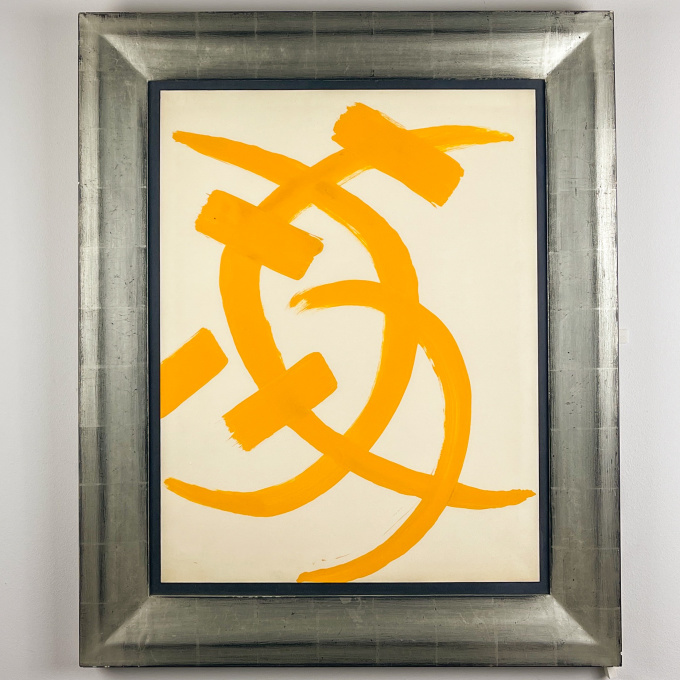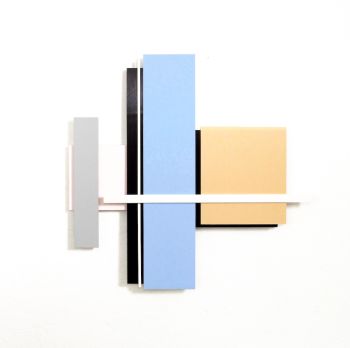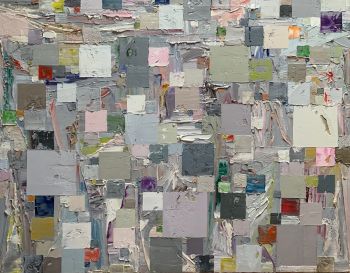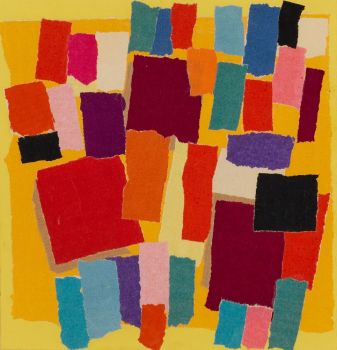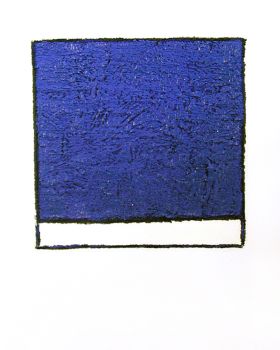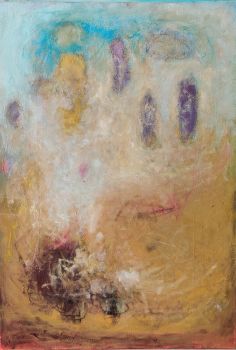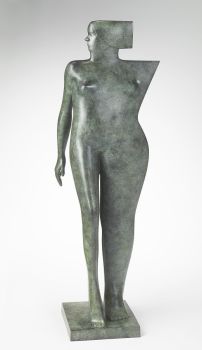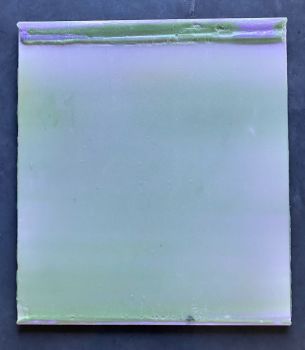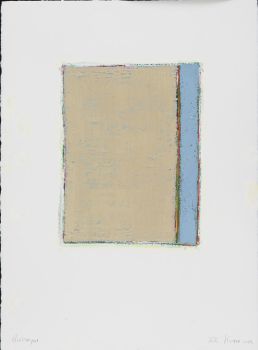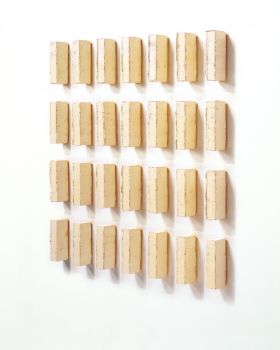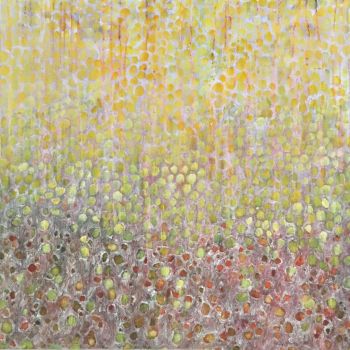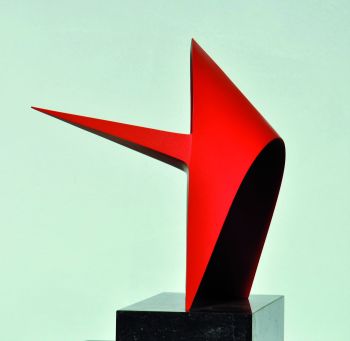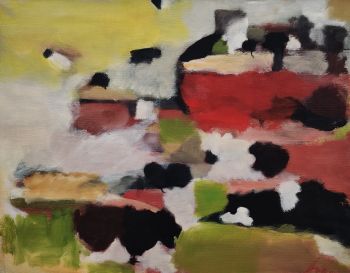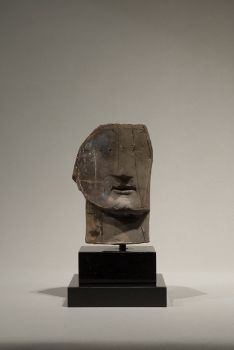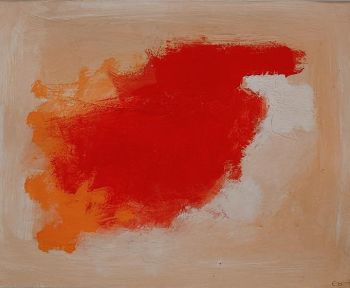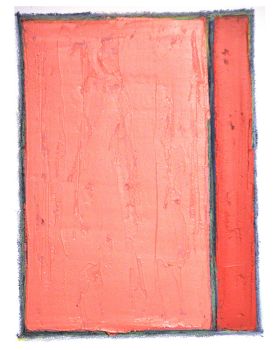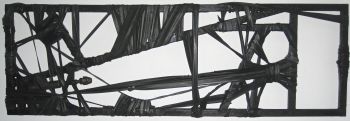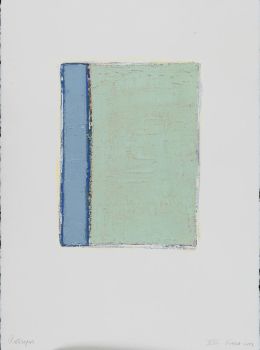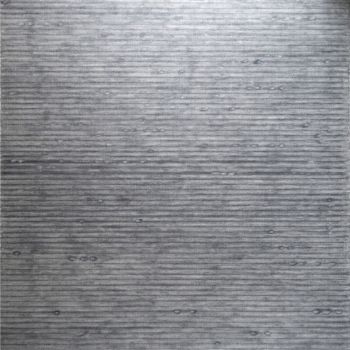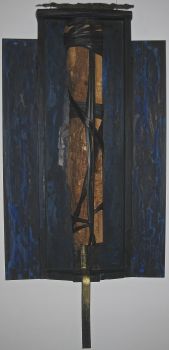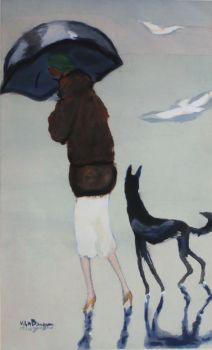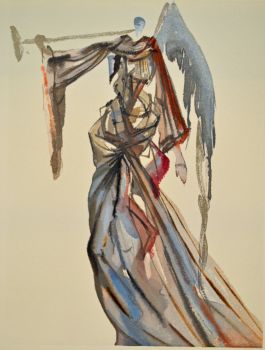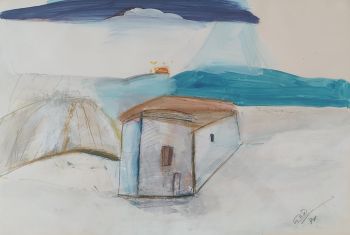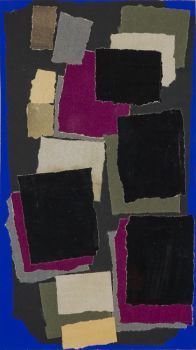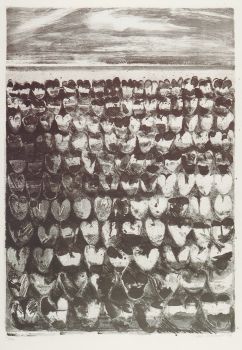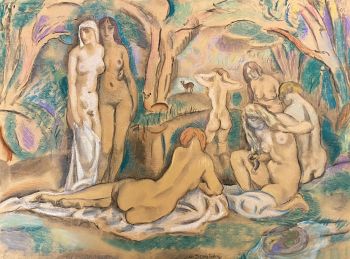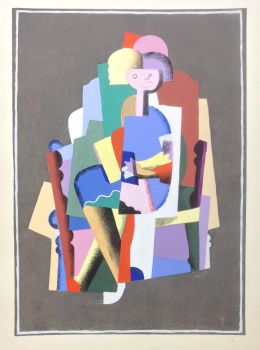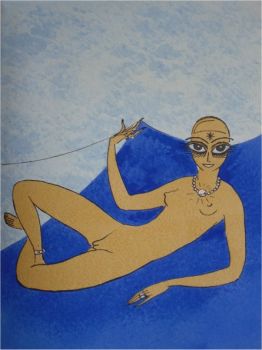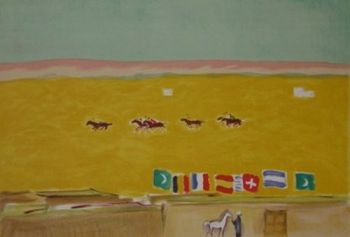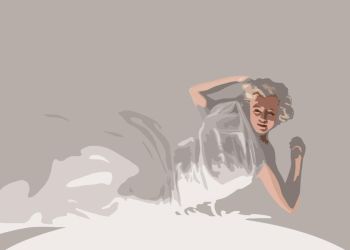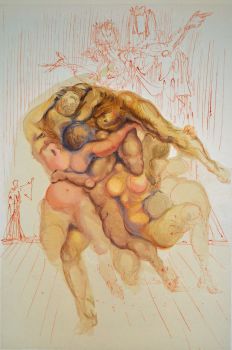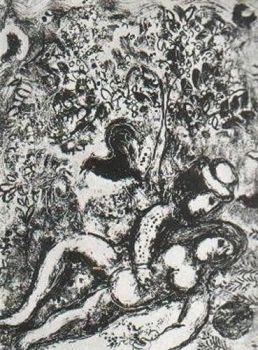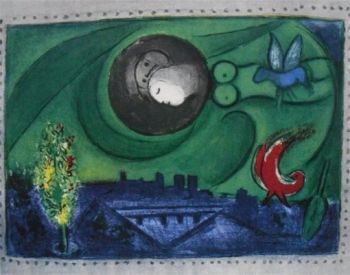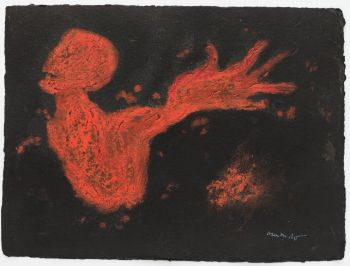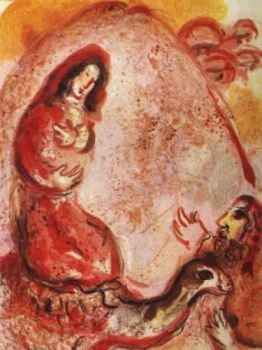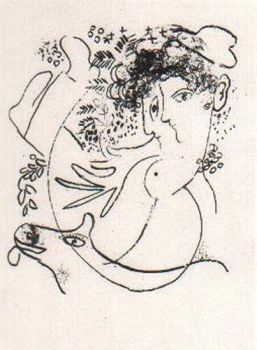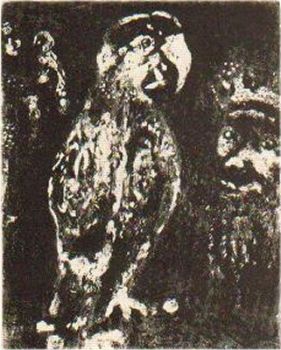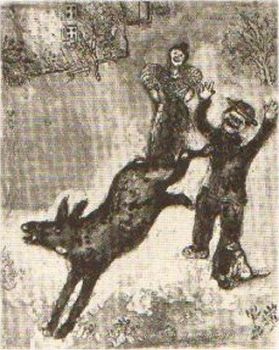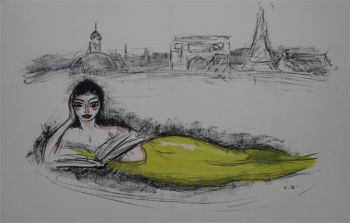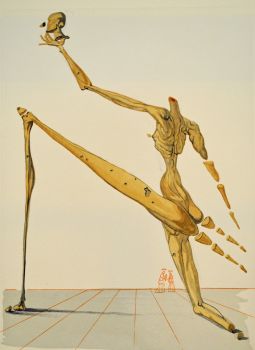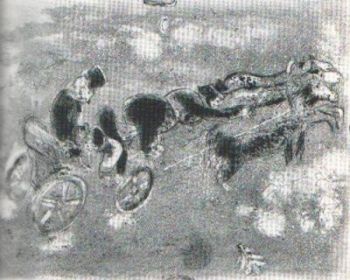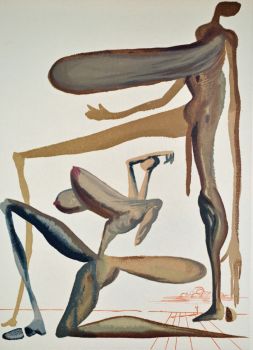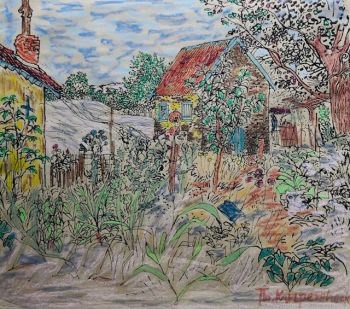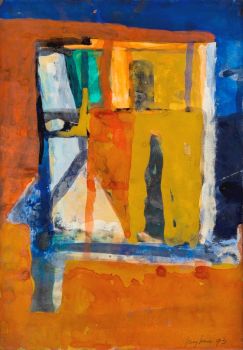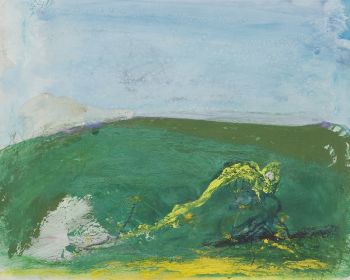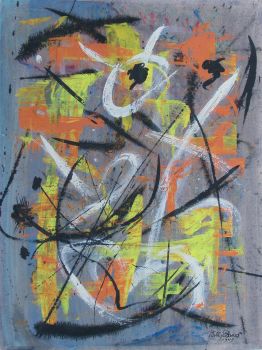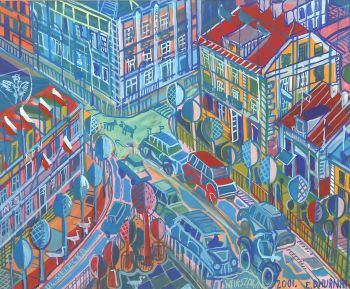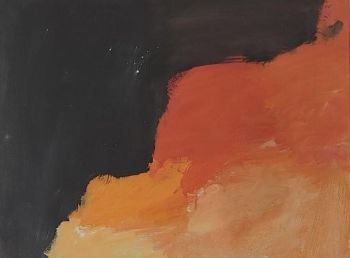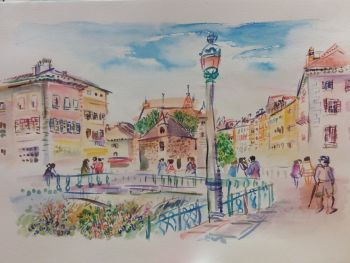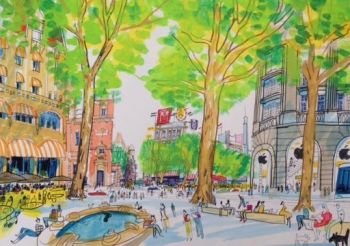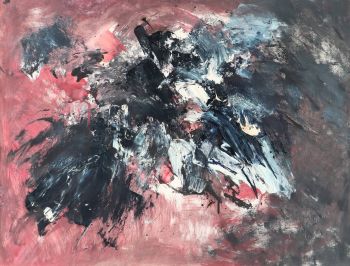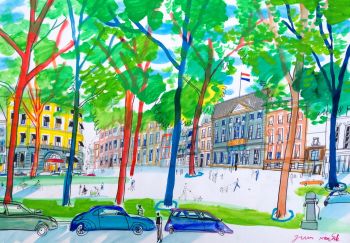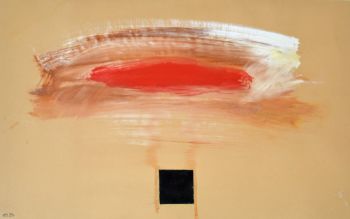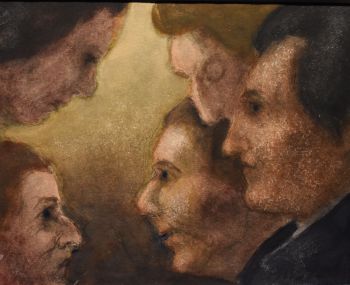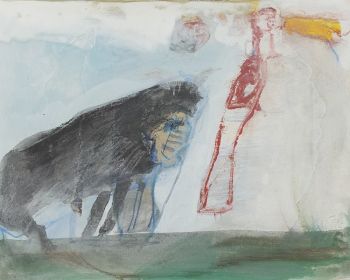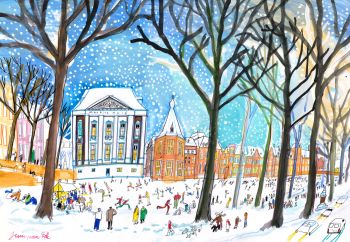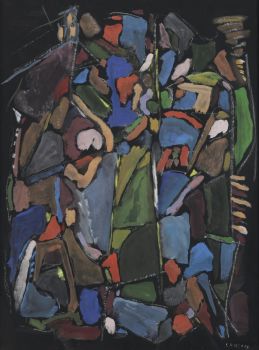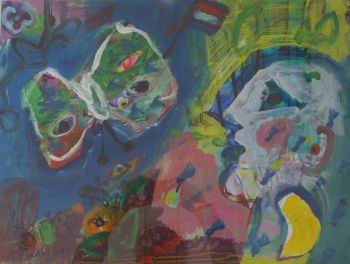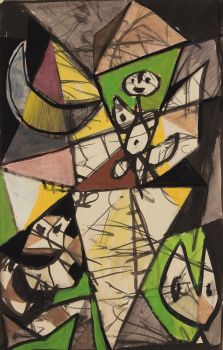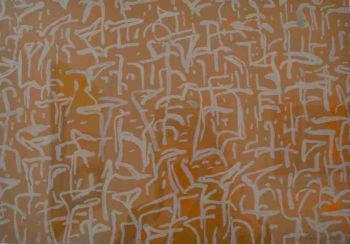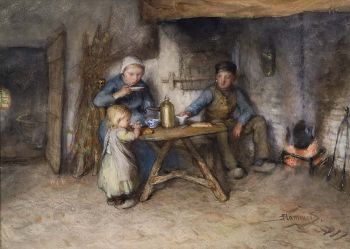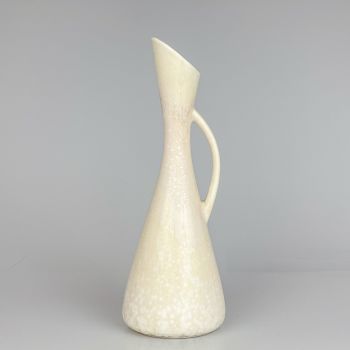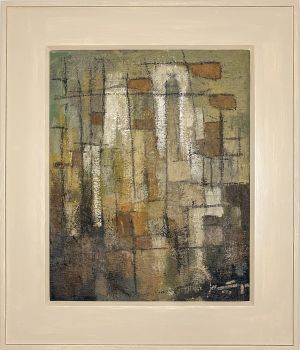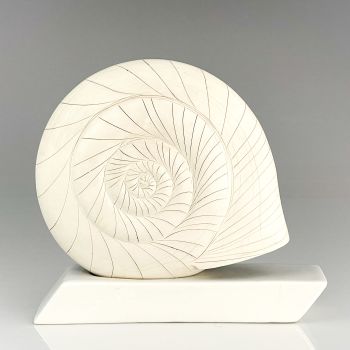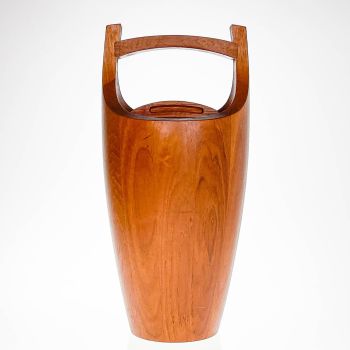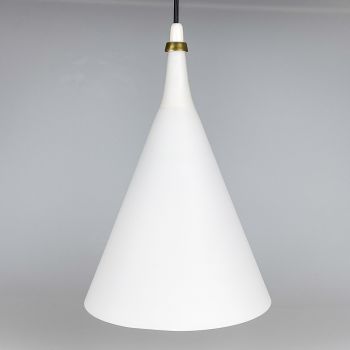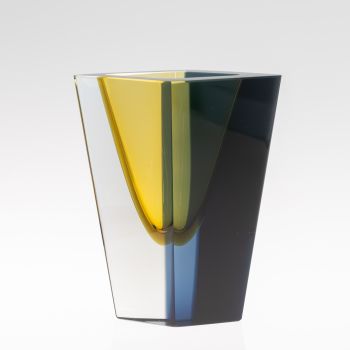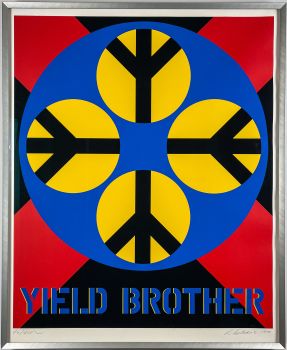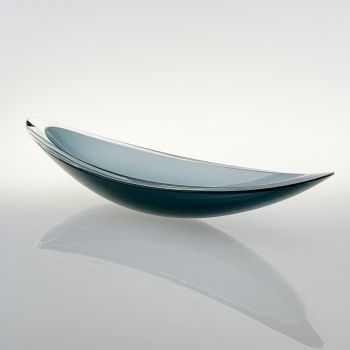Willem Hussem – Abstract composition, 1963 – gouache on cardboard, professionally framed 1963
Willem Hussem
GuachePintar
86 ⨯ 70 ⨯ 4 cm
ConditionVery good
Atualmente indisponível via Gallerease
Van Kerkhoff Art
- Sobre arteAn original artwork – Abstract Composition, gouache on carboard - by the Dutch artist Willem Hussem. Painted in 1963 and bearing the original studio-label on the reverse. Professionally framed, museum-glass.
About Willem Hussem
Willem Hussem (Rotterdam 1900 – The Hague 1974) was a Dutch painter, sculptor and poet, best known for his abstract paintings made after World War II.
Hussem studied with Dirk Nijland and attended the Rotterdam Academy. Between 1918 and 1936, he lived and worked in Paris, where he met Piet Mondrian and Pablo Picasso. Besides Picasso, Vincent van Gogh also influenced his style.
After World War II, his works became abstract. He was part of art movements such as Fugare, the Liga Nieuw Beelden and Verve. His work is counted among the “Nieuwe Haagse School” art movement.
He was awarded the Jacob Maris Prize three times and received an invitation to the Venice Biennale in 1960. During his lifetime, he had solo exhibitions at the Gemeentemuseum in The Hague, Museum Het Princessehof in Leeuwarden and Stedelijk Museum in Schiedam, and participated in major group exhibitions at Museum Boijmans van Beuningen in Rotterdam, Van Abbemuseum in Eindhoven and Stedelijk Museum in Amsterdam. He also exhibited twice at the Carnegie International in Pittsburgh, US.
Currently, his works are in the collection of: Kunstmuseum Den Haag, Stedelijk Museum in Amsterdam, Dordrecht Museum in Dordrecht and Rijksmuseum Twente in Enschede (among others).
Signed
Studio-label on the reverse
Condition
Good original condition. Some small damages to the frame
Provenance
Klasema Art
Dimensions
Artwork
Height 65 cm
Width 50 cm
Frame
Height 86 cm
Width 70 cm
Depth 4 cm - Sobre artista
Willem Frans Karel Hussem (nascido em Rotterdam em 29 de janeiro de 1900, falecido em Haia em 21 de julho de 1974) foi um versátil artista holandês, conhecido como pintor, escultor e poeta.
Hussem recebeu treinamento de Dirk Nijland e teve aulas na Academia de Rotterdam. Entre 1918 e 1936 permaneceu em Paris, onde fez contactos com grandes artistas como Piet Mondriaan e Pablo Picasso. A influência de Picasso e Vincent van Gogh é claramente perceptível em seu estilo.
Em 1936, Hussem finalmente escolheu Haia como sua base, onde se estabeleceu na Mijtensstraat em Schilderswijk. Após a Segunda Guerra Mundial, sua arte evoluiu para a abstração. Atuou em movimentos artísticos como Fugare, Liga Nieuw Beelden e Verve, e seu trabalho está associado à Escola de Nova Haia.
Apesar do seu reconhecimento nacional e internacional, incluindo a conquista três vezes do Prémio Jacob Maris (1952 e 1955 para pintura, 1958 para desenho) e um convite para a Bienal de Veneza, a sua família vivia em condições modestas.
Suas obras de arte fazem parte das coleções de: Kunstmuseum The Hague, Stedelijk Museum Amsterdam, Dordrechts Museum e Rijksmuseum Twenthe em Enschede
O Posthoorngroep formou-se em torno de Hussem, um coletivo de artistas envolvidos com pintura, poesia ou ambos. Este grupo recebeu o nome de um conhecido estabelecimento de restauração em Haia.
Como poeta e ilustrador, Hussem estreou-se em 1940 com "The Coastline", publicado pela L.J.C. Boucher, seguido por "Sea View" no A.A.M. Stols em 1941. Ele também ilustrou com um desenho de árvores a caneta em "Een lied van Isoude" de P.C. Boutens (1941). Na década de 1960 publicou várias coletâneas de poesia, incluindo a conhecida "Voor twee dacharren bluebekken" (1966). A sua poesia, muitas vezes enriquecida com ilustrações próprias, continuou a aparecer após a sua morte, sendo a última "Diga com tinta" (2011). Hussem manteve amizade com Simon Carmiggelt.
A partir de 1967 Hussem começou a criar esculturas em metal.
Um trágico incidente envolveu uma obra de arte em alumínio de Hussem, avaliada em cerca de 100.000 euros, que foi acidentalmente destruída em 2017 durante a demolição de uma estação de correios em Raalte. A obra de arte foi um dos últimos objetos a ser destruído em uma trituradora, pois o desenvolvedor do projeto não havia sido informado do seu valor cultural.
Você está interessado em comprar esta obra de arte?
Artwork details
Related artworks
- 1 - 1 / 1
- 1 - 4 / 24
- 1 - 4 / 24
André Lanskoy
Composition Abstraite (sur fond noir)20th century
Prijs op aanvraagFrans Jacobs Fine Art
Bernardus Johannes Blommers
VADER EN MOEDER MET KIND AAN TAFEL1845 - 1914
Prijs op aanvraagStudio 2000 Art Gallery
1 - 4 / 24- 1 - 4 / 12

